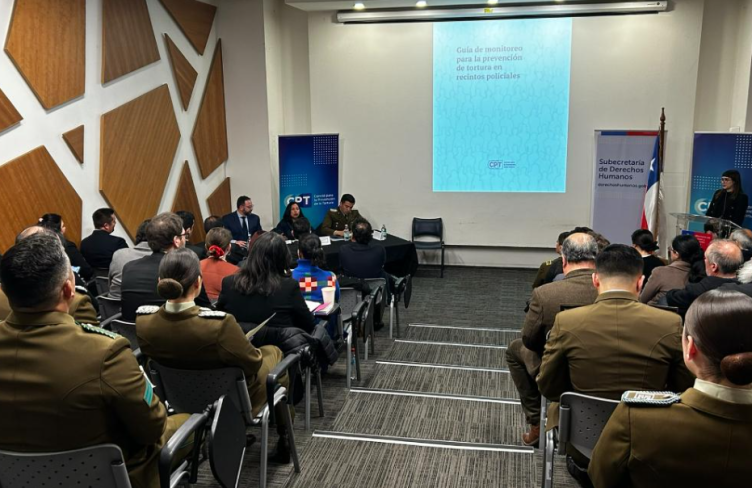With their holistic and strategic approach, torture prevention mechanisms in Latin America are enhancing protection against abuses for all persons from the outset of detention.
Over the last years, the APT has focused its efforts in Latin America – and worldwide – to reduce the risks of torture and other ill-treatment for detainees during the early stages of their custody. In fact, these are the moments where persons are at the highest risk of abuse by the authorities. Global research has shown that legal and procedural safeguards applied in practice have the highest impact in protecting the rights of detainees.
National and Local Preventive Mechanisms, established under the Optional Protocol to the Convention against Torture, are uniquely placed to ensure that all detainees are protected and are granted with safeguards from the outset of their detention. These bodies benefit from unfettered access to any place of detention, can carry out thorough analysis and report on risky moments and practices, provide recommendations to create change and foster dialogue with the authorities.
Their importance to the prevention of torture was crystal clear during the regional meeting of National Preventive Mechanisms (NPMs) and Local Preventive Mechanisms (LPMs), organised by the APT along with the NPM of Mexico. The event focused on strengthening their role even further.
The first two days of the event were devoted to exchanging practices among the preventive mechanisms from Argentina, Bolivia, Brazil, Chile, Costa Rica, Ecuador, Guatemala, Honduras, Mexico, Panama, Paraguay and Peru on their methodology and strategies to monitor the first hours of detention. This resulted in a strengthened cooperation between NPMs/LPMs from the region and the Rapporteur on the Rights of Persons Deprived of Liberty and for the Prevention of and Fight Against Torture of the Inter-American Commission on Human Rights (IACHR), as it was the first time that they all gathered in one place.
Throughout the two-day meeting, the APT facilitated interactive discussions amongst participants, combining exercises, working groups and plenary sessions. Despite the remaining challenges faced by NPMs/LPMs in monitoring the first hours of detention, most of them have adopted a strategic approach to monitoring these early stages and the implementation of detention safeguards and, more importantly, they have contributed to positive changes in law and practice.
For example, the LPM of the Argentinean province of Salta, following an analysis of the highest risks of torture, has decided to focus its attention to the police response to emergency calls (911), responsible for the highest number of complaints of torture. The monitoring of such emergency system by the LPM contributed to a drastic reduction of complaints, initially by 40%, and later by 70%. In Costa Rica, based on the NPM’s findings regarding the improper content and use of registers by the police, the NPM entered into a dialogue with the authorities and contributed to the development of a new police protocol and a unified detention register in police stations, which constitutes a very important safeguard against torture and other ill-treatment.
The meeting also laid the foundation for the establishment of a regional network of national and local preventive mechanisms.
The last day of the event, which gathered around 150 participants, including the Latin American preventive mechanisms, Mexican authorities, civil society organisations and state human rights commissions. It offered a space for dialogue and exchange of experiences and good practices on the implementation of safeguards in the early stages of detention.
The meeting took place in Mexico City from 18 to 20 September 2019 and was co-organised by the NPM/National Human Rights Commission of Mexico and the APT, with the support of the UK Embassy in Mexico and the government of Liechtenstein. It followed a similar regional workshop focused on monitoring safeguards during the first hours of deprivation of liberty, organised by the APT in 2017.




